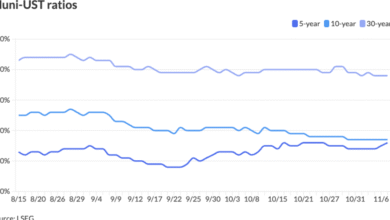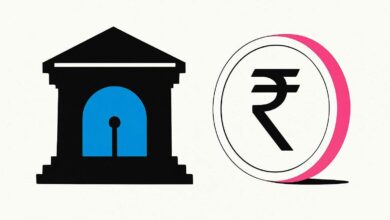Vietnam’s securities regulator seeks to expand institutional market participation

By
Thai Ha
Sun, October 26, 2025 | 8:00 am GMT+7
The State Securities Commission of Vietnam (SSC) is preparing a comprehensive package of measures to allure more institutional investors to the stock market, which currently sees up to 85-90% of total transaction value come from retail investors.
Bui Hoang Hai, Vice Chairman of the State Securities Commission (SSC). Photo courtesy of the commission.
Boosting institutional participation
Vietnamese retail investors currently make up 99% of all trading accounts and contribute 85-90% of total transaction value.
“While retail participation has helped boost liquidity – with Vietnam’s liquidity metrics already exceeding the thresholds of FTSE Russell and MSCI – it has also made the market more volatile. Vietnam’s stock market shows the highest price volatility in Southeast Asia,” said Bui Hoang Hai, Vice Chairman of the SSC.
“This higher risk perception means foreign investors demand a higher risk premium, which contributes to Vietnam’s relatively low P/E ratio compared with regional peers, leading to increased capital costs for Vietnamese firms raising funds overseas,” Hai told the recent conference titled “The fund Industry in Vietnam’s stock market development and the attraction of indirect investment”.
Retail investors also face high information costs and often follow herd behavior, which can amplify market swings. Encouraging more investment through fund vehicles would help stabilize the market, improve capital-raising efficiency, and enhance investor protection, Hai added.
A nascent but fast-growing fund industry
Vietnam currently has 43 fund management companies overseeing more than VND800 trillion ($30.41 billion) in assets, more than seven times the level in 2014, growing at roughly 20% annually.
However, these assets equal only 6% of GDP, far below peers such as Thailand, Malaysia, and China, where the ratio is 30-50%. The SSC sees significant room for growth, calling this a “mature moment” to expand the domestic fund industry.
Under the stock market development roadmap, Vietnamese retail investors will account for 70% of trading value by 2030, and 60% thereafter. The respectively combined figures for institutional investors and foreigners are 30% and 40%.
The number of fund certificate holders will reach 2.5 million by 2030 and 5 million by 2035. Foreign investor accounts will rise to 200,000 by 2030, growing 15% annually. The number of investment funds will increase to 500 by 2030, maintaining 25% annual growth thereafter.
Key policy measures
The SSC plans to expand financial literacy programs, improve advisory services, and introduce a code of ethics for licensed professionals. It will also promote new forms of investment advisory and encourage the establishment of more fund management firms.
A draft revision to Circular 98 on fund operations is being submitted to the government, aiming to diversify fund types, including gold ETFs and infrastructure bond funds. Rules for index funds are also being revised.
The SSC is exploring gold ETFs and gold derivatives, in line with directives to reform the gold market. Such products would reduce the need for physical gold holdings, helping curb gold smuggling and easing pressure on foreign exchange reserves.
The Vietnam Stock Exchange (VNX) has completed an overhaul of its index regulations to allow for greater flexibility and the participation of external organizations in index development. VNX recently signed a cooperation agreement with FTSE Russell to build new indices, giving Vietnamese investment products better access to global investors.
Revisions to Circular 98, now being compiled, will enhance transparency in online fund distribution and encourage commercial banks to act as fund distributors. The SSC is also proposing tax incentives to encourage fund certificate investment and upgrading fund transfer agent systems to improve data transparency.
Revisions to Circular 134 will clarify rules for electronic transactions, enhance client access, and strengthen data systems. The SSC also plans to encourage banks to invest in fund certificates and corporate bonds, particularly those issued for debt restructuring purposes.
Hai noted that current regulations prohibit both banks and insurers from investing in such bonds. However, all bonds, including private or public issuance, have credit requirements. Restructured bonds should not be considered risky because after restructuring, there is a stable cash flow and the risk is not too great.
Investment restrictions on pension funds and insurance companies will be reviewed to expand the list of eligible assets and increase allowable investment ratios.
The SSC and government agencies have made steady progress in easing foreign investor access as part of the push for market reclassification.
To reach MSCI Emerging Market or FTSE Russell Advanced Emerging status, Vietnam must improve eight remaining criteria, currently rated as restricted rather than unmet. These, the SSC said, could be addressed “within the next few years.”
For MSCI, more complex reforms are needed, such as lifting foreign ownership limits, expanding the supply of quality listed securities, permitting short selling, and deepening the foreign exchange market.
Minister of Finance Nguyen Van Thang said FTSE Russell’s upgrading Vietnam’s market status from “frontier” to “secondary emerging”, effective from September 11 next year, elevates the country’s standing on the global financial map.
“The move confirms Vietnam’s sound development trajectory and growing integration into the international financial system,” he told the conference “The fund Industry in Vietnam’s stock market development and the attraction of indirect investment”.
It is expected to attract greater foreign portfolio inflows, providing additional resources for economic growth while improving the quality of market participation by increasing the share of institutional investors and promoting a more professional and sustainable fund management industry.






